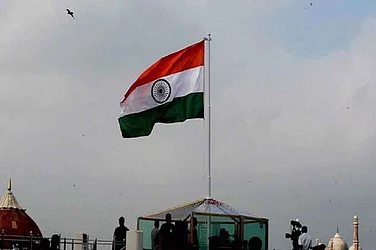In a significant development, the Central Bureau of Investigation (CBI) is gearing up to delve into nine additional cases linked to the Manipur violence saga, elevating the total number of cases under the agency's scrutiny to 17, as confirmed by officials familiar with the matter.
This in-depth investigation is not confined to the existing 17 cases alone. Sources reveal that any case concerning crimes against women or sexual assault, regardless of its connection to the current cases, could potentially be expedited to the CBI's purview, as reported by PTI.
Among the eight cases that the CBI has already registered, two are centered around alleged sexual assaults on women in Manipur. However, the agency is now poised to initiate proceedings on nine more cases, shedding light on the gravity of the situation.
A forthcoming addition to this roster of cases is projected to involve a case of alleged sexual assault in the Churachandpur district of the state, sources indicate.
Navigating a delicate social fabric, the CBI confronts the intricate task of maintaining impartiality throughout the Manipur operation. This task is particularly sensitive as the involvement of any individual from one community could inadvertently attract accusations of bias from the other side, caution the officials.
A significant portion of these cases potentially falls under the ambit of the Scheduled Castes and the Scheduled Tribes (Prevention of Atrocities) Act, 1989. The agency intends to mobilize its superintendents of police, acting as supervisory officers, to oversee these cases, given that deputy superintendents of police cannot fulfill this role under the Act.
To ensure the integrity of the investigation, the CBI has elected to transfer all forensic samples to its Central Forensic Science Laboratory. This preemptive measure is aimed at preventing any hint of compromise in the investigative process due to involvement from any party tied to the ongoing conflict.
Furthermore, recognizing the essential need for sensitivity, the CBI has engaged women officers to lead the investigation into crimes against women—a requisite for statement collection and questioning procedures.
The backdrop of this unfolding situation reveals a grim reality. A spate of ethnic violence has claimed over 160 lives and left several hundreds injured since May 3. The initial spark for this turmoil ignited with the 'Tribal Solidarity March,' organized in response to the Meitei community's demand for Scheduled Tribe status, triggering a series of events that culminated in these tragic outcomes.
While the Meitei community constitutes approximately 53 percent of Manipur's population and predominantly resides in the Imphal Valley, tribal groups, encompassing Nagas and Kukis, comprise 40 percent and are concentrated in the hill districts—a divide that continues to cast a shadow over the region's stability.


























